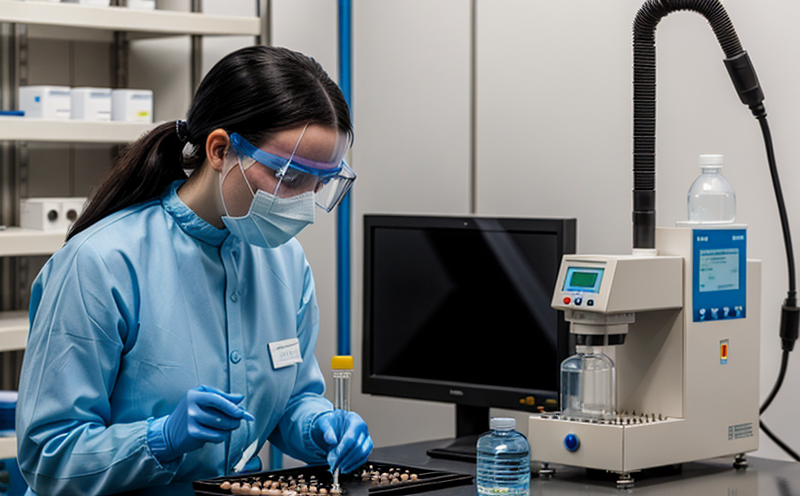Chloride Residue Profiling Testing
The chloride residue profiling testing is a critical procedure in pharmaceutical quality assurance and compliance. Chlorides can be present as impurities or adventitious agents, and their presence must be controlled to ensure product safety and efficacy.
This testing method is particularly important for products that have high sensitivity to metallic ions, such as antacids, laxatives, and certain dietary supplements. The chloride content needs to be accurately quantified to meet regulatory standards and assure the quality of the final pharmaceutical product.
During this process, we employ advanced analytical techniques like inductively coupled plasma optical emission spectrometry (ICP-OES), which allows for precise determination of trace levels of chlorides. This method is highly sensitive and suitable for low-level chloride detection.
The testing procedure involves several steps to ensure accurate results. First, the sample must be thoroughly prepared according to standard protocols. This includes homogenization, extraction, and dilution as necessary. The precise handling of samples is crucial to avoid contamination or loss during preparation.
Once prepared, the sample is introduced into the ICP-OES instrument for analysis. The instrument ionizes the sample in a plasma torch, producing an emission spectrum that can be analyzed to determine the concentration of chloride ions. This process requires careful calibration and standardization to ensure accurate results.
The results are typically reported as parts per million (ppm) or micrograms per gram (µg/g), depending on the scale of the analysis. These values provide critical information for quality assurance teams to make informed decisions about product release and further processing.
Chloride residue profiling is a vital step in ensuring that pharmaceutical products meet strict regulatory requirements, such as those set by the United States Pharmacopeia (USP), European Pharmacopoeia (Ph. Eur.), and International Conference on Harmonization (ICH). These standards are designed to protect public health by ensuring that medicines are safe, effective, and of high quality.
The importance of chloride residue profiling cannot be overstated in the pharmaceutical industry. It is a fundamental aspect of quality control that helps to maintain patient safety and product integrity. By adhering to these stringent standards, we can ensure that our testing meets the highest levels of scientific rigor and reliability.
Applied Standards
| Standard | Description |
|---|---|
| USP NF 15, Chapter 640 | General test for chloride. |
| Ph. Eur., Monograph 2.9.5 Chloride | Detection and quantification of chloride in pharmaceutical products. |
| ICH Q3D, Guideline for Elemental Impurities | Guidance on the control of elemental impurities including chlorides. |
Why Choose This Test
The chloride residue profiling test is essential for ensuring that pharmaceutical products meet stringent quality and safety standards. By choosing this testing method, you can:
- Avoid potential contamination from chlorides.
- Evaluate the purity of your raw materials and intermediates.
- Ensure compliance with international regulatory requirements.
- Gain insights into the stability and shelf-life of your products.
The precision and accuracy of this test provide valuable data that can be used to improve product quality and safety. It is a cornerstone of pharmaceutical development, ensuring that products are safe for use by consumers.
International Acceptance and Recognition
The chloride residue profiling testing method has been widely accepted and recognized globally. Regulatory bodies such as the FDA, EMA, and WHO have endorsed this approach to ensure consistent quality standards across borders.
This acceptance is crucial for pharmaceutical companies operating in multiple jurisdictions. It ensures that they can meet local regulations without compromising on global standards. The method’s reliability and consistency make it a preferred choice among industry professionals.





